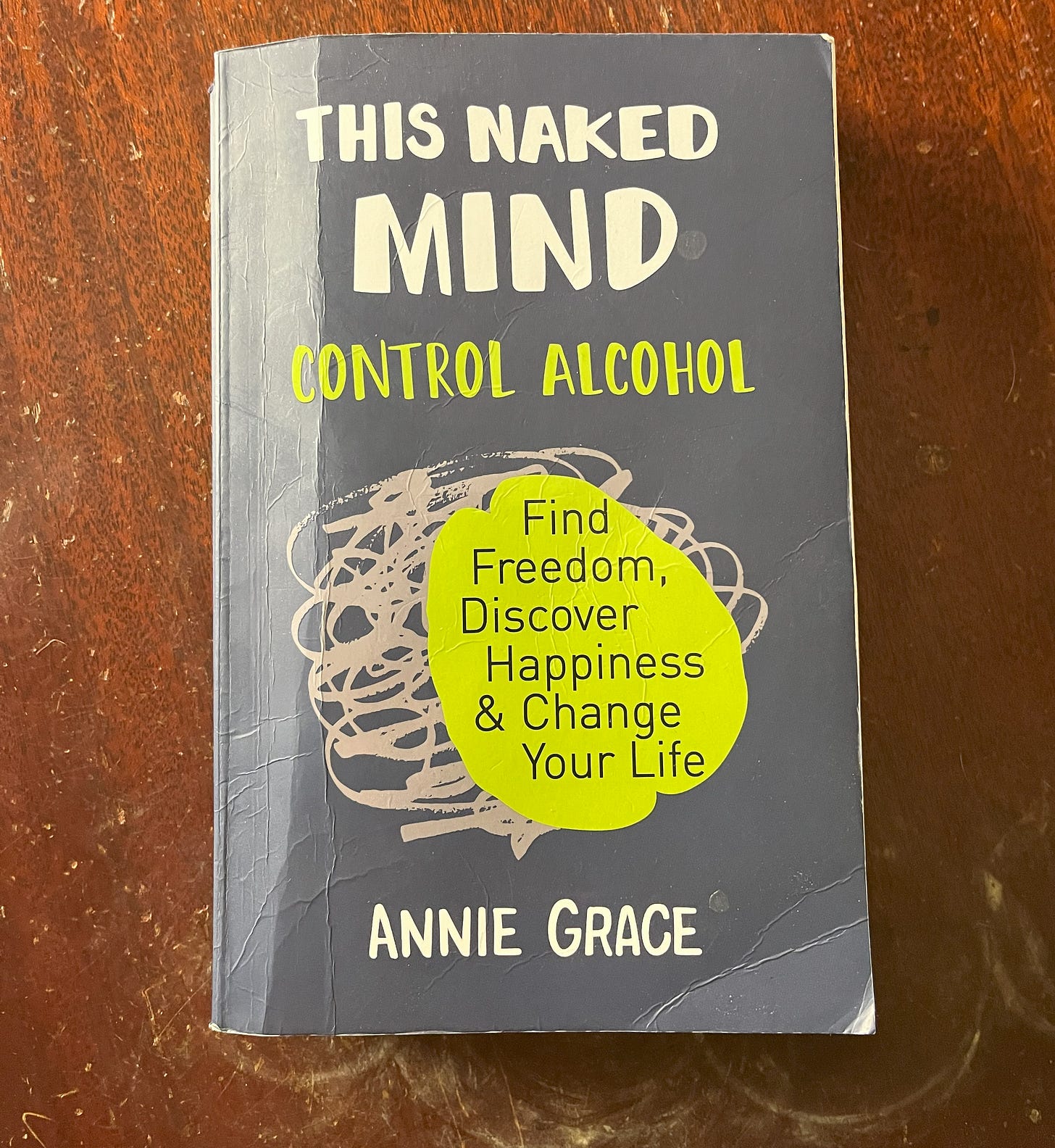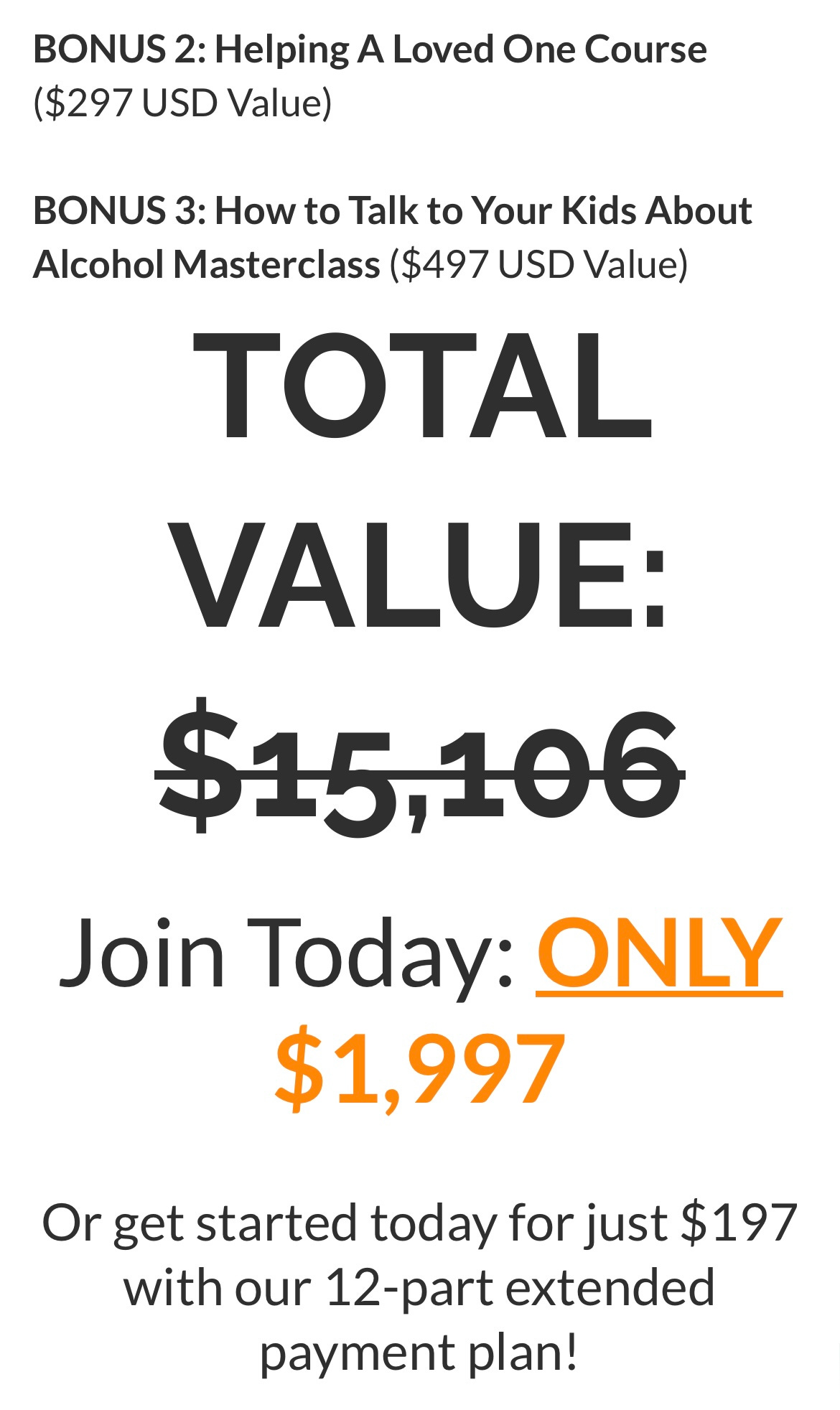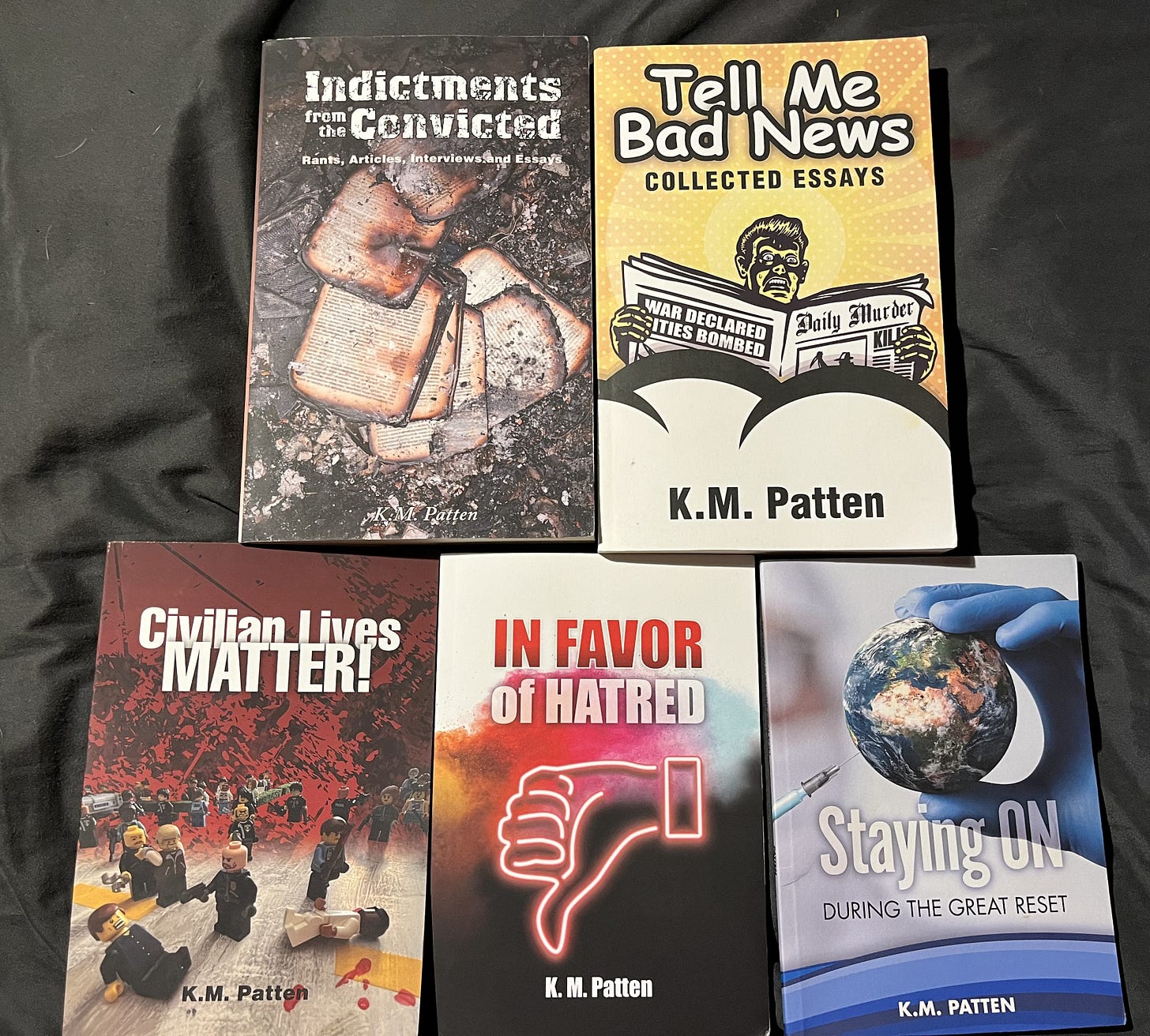Why I Quit Drinking, and Why I Will Soon Start Drinking Again
(Part 3 of 4)
Neo-Temperance Rising
No discussion about alcohol ever takes place without someone mentioning that its communal consumption has been humanity’s favorite habit for 10,000 years. I’ve said this too. With that being a factual statement, an honest truthseeker would wonder if there’s anything more to the claims made by drink’s defenders. Could there possibly be good, acceptable reasons as to why the individual or society should consume a substance which has caused so much harm?
As I said at the end of the last section, the majority have taken up a new addiction, that which is satisfied every time the supercomputer has been pulled out from the pocket or purse. Obviously, when examining the Alcohol Question, the average always-online truthseeker will start scrolling and searching on their favorite Big Tech platform. And it’s there that the answer will become clear, definitive, and unambiguous: be it an early death, ruined relationships, or lost productivity, alcohol use will inevitably lead to ruin. Indeed, when peering into the Digital Realm, one sees only one side of the issue – and it isn’t positive. “Here,” the antialcohol propaganda is utterly relentless. While some videos feature people discussing their good time drinking with friends, nearly all of the content pushed to the top are about sobriety journeys, the harms of alcohol, and “tips to quit.” The big-time podcasts (thinking of Andrew Huberman and those featuring Andy Ramage) like to demonize every last drop, making you pull out your credit card so as to purchase that “liver repair” supplement.
Clearly, the algorithm doesn’t like the stuff. If the Alcohol Industry once ruled supreme at stadiums and theaters, persuading sports fans and moviegoers to buy their product, then Neo Temperance has been given a large pixel which floats down the fleeting attention span of those digitally enraptured. (Who knows, maybe some of my guilt came from the onslaught of this propaganda!)
Books – which, thankfully, are still being written and published – can give us a more balanced view here. A few years ago, when discussing those plans to cut back on my drinking, someone recommended Annie Grace’s This Naked Mind, which is not only a manifesto and call to arms, but also her brand. It was only this year that I got around to reading it.
First released in 2015, Grace’s claims are so emotive and overstated that they can only be made by those pushing an agenda. In other words, the book is filled with so many outlandish arguments, petty anecdotes, and outright lies that real intentions are hard to conceal.
Her repetitions and forcefulness are so grating that you could almost see Grace swinging a coin in front of your face. Grace even uses the word “revolution” while yawningly evoking the Matrix metaphor.1 The final result comes across almost like a parody of the old “Just Say No” campaign.
For instance, Grace recalls going on a trip to Vegas with a group of friends. Walking down the Strip, they came across a homeless guy who “clutched a bottle of alcohol hidden in a paperbag.”2 For Grace, it was obvious what had destroyed this man’s life: “alcohol is to blame for his tragic situation.”3 Yet she was bewildered as to how both her friends, as well as this beggar, continued drinking a substance which was, after all, the exact same poison. Not thinking very highly of her friends, Grace assures us that the Vegas partier will eventually become the Vegas beggar.
How would Grace know so much about that man on the street? She doesn’t tell of stopping to talk to him. Could he be the victim of abuse, a veteran of one of our stupid wars, or someone suffering mental illness? These never entered her marketing pl…err…that is, her mind. They weren’t important. Like a bigoted tarot card reader, Grace took a glance at this filthy man and knew his whole life story.
Coleman Andrews already debunked such nonsense back in 1994. In one of his Los Angeles Times columns, defending his God-given right to get drunk, Andrews wrote:
It is possible, to some extent, to defend alcohol from these charges. Who says, for instance, that the tragic character flaws blamed on drinking are always caused by drinking, rather than the other way around? How many people on Skid Row drank themselves there, and how many drink because they are there?
The nonprofit Invisible People claims that drug addiction isn’t even the main cause of homelessness. Whether that’s true or not – or if there is more nuance to be unearthed – it certainly wasn’t the case for Grace, who fully admits to being a successful marketer and functional alcoholic, while never admitting to anything terribly life shattering. She says she’s “sorry for the pain I caused my husband,”4 but fails to explain what crimes she’s guilty of. “At the end,” she writes, “I was drinking two bottles a day.” The slightest admonition likely would’ve made her slow down a bit.
But the amount of consumption is irrelevant anyway. And that is a key part of Neo-Temperance, because, for the most part, their disdain is directed not at heavy drinkers but at moderate and occasional drinkers. Let’s hear Grace say exactly that. Towards the end of her book, she tells us about her friend Todd, who liked to enjoy himself an occasional beverage.5 How close was Todd to selling the house? Brace yourself. Todd was known to have a total of two beers…a week – one on Friday, and another on Saturday. The true image of a drug addict!
“Even in this situation,” she wonders, “why drink at all?” It couldn’t be the uncomplicated reason that Todd just liked the taste of a good beer, because Grace insists that nobody actually likes the taste of beer or wine.6 In time, Todd’s two beers will fail to confer any buzz, and then he’ll have to drink more and more until he’s fellating men around the back alley in exchange for shots of Fireball. (Who drinks a single beer with the intention of getting a buzz?)
Which brings me to another of Grace’s lies. Although she takes issue with certain aspects of Alcoholics Anonymous and the 12 Steps (she believes that addicts are pretty much blameless, but that personal empowerment is more helpful than finding a “higher power”), she accepts the essence of Disease Theory, which maintains that addiction will progressively get worse, with people inevitably consuming more and more of their favored drug over time. “You and the drinkers you know will be drinking more in five years than you are today – that is how alcohol works.”7
This claim, of course, is complete rubbish. The fact is, the majority of addicts simply outgrow their addiction. This was shown in a study of 42,000 Americans, whereby half of those who were given active alcoholism or addiction diagnoses during their teens and 20’s no longer qualified for the criteria at the age of 35. Surprisingly, most of them received no treatment whatsoever. Instead, as the years went by, their drug/alcohol intake gradually decreased.
“How many people do you know,” asks Grace, “who drink consistency less over time?”8
Many.
Coming up with explanations is easy: While it’s fun to drink, it’s not fun to do every day; of course, someone often finds other ways to fill their time (work, writing, and exercise are all better done while stone sober); while the possibility of a hangover can be quite dissuading. “Maybe tomorrow. Or even next week.”
Annie, not bringing anything new to the discussion, correctly states that the more you drink, the higher your tolerance. At some point, you’re just pouring expensive liquid down your throat for no effect whatsoever. That alone forces one to take breaks, because if you want to enjoy your intoxicant, you have to moderate and cut back. These, in some combination or other, is the likely explainer. Why Annie never participated in one of those “sober months” is beyond me.
Perhaps Grace’s friend Todd drank those couple beers because he had heard that they might be good for his health. In that case, he’s drinking far less than he should be, as there is abundant evidence showing that low levels of daily alcohol are good for one’s health, specifically the heart and the brain.
Expectedly, Grace dismisses the “relatively few studies that claim alcohol is good for you and ignoring the thousands of studies that prove otherwise.”9 Last year, the WHO affirmed this claim (Grace even quotes the WHO), declaring that there is no safe level of drinking. According to our saviors during COVID, every drop of alcohol greatly increases your chance of getting cancer.
This declaration defied common knowledge. For decades, medical professionals held that 2 drinks a day were likely beneficial for one’s health. This was based upon the famous “J-Curve,” first discovered by Professor Raymond Pearl in the 20’s, showing that moderate consumers of alcohol actually lived longer than both heavy drinkers and teetotalers. Since then, several large epidemiolocal studies have confirmed this.
In updating the consensus, the WHO replied upon the work of Professor Tim Stockwell, a member of an actual Temperance organization, called Movendi, which has roots going back some 150 years. Stockwell’s methodology was widely criticized, and he even acknowledged the existence of the “J-Curve.”
Stockwell says there are two explanations for the J Curve. First is the “sick quitter hypothesis.” This means that abstainers had to quit drinking because they developed issues with their health, then died at a young age from those complications. In 2005, in one of his last studies, the respected epidemiologist Richard Doll made controls for this, excluding former drinkers and seeing whether people who have never drunk were healthier than people who drink moderately. His study found a 28% reduction in ischemic heart disease and a 12% reduction in all-cause mortality for those who enjoy a couple drinks a day.
Stockwell then offers a second explanation, which Christopher Snowdon calls the “Sickly Abstainer Hypothesis.” It’s the claim that abstainers are somehow predisposed to poor health, which makes alcohol even more dangerous and harmful. Snowdon argues against this theory:
If teetotalers were inherently less healthy, we would expect them to do worse than moderate drinkers across the board and there should be a J-Curve for nearly all diseases (the exception, perhaps, would be for liver disease). But there isn’t. We see a J-Curve for cardiovascular disease, diabetes, and dementia (and, more contentiously, colorectal cancer). We do not see a J-Curve for the vast majority of cancers. Doesn’t it seem strange if never-drinkers (or ex-drinkers, for that matter) are so unhealthy, deprived, fat, physically inactive and poorly nourished – or if they have some mysterious confounder that no one has yet identified which predisposes them to ill health?
Annie’s lies notwithstanding, most evidence points to the salubrious effects of moderate drinking. (I’ve also recently learned that IPAs have high levels of silicon, which has been shown to clear aluminum from the brain.)
A couple times in her book, Annie drops her hand. “A good marketer can sell practically anything to anyone,” she writes. Claiming to have skill in her craft, she “often ponders how I could sell something, a product or an experience.”10
Well, I did buy a copy!
Assumingly, Grace had a relapse, downed a bottle of her favorite grape juice, and typed out the truth, noticing the error only after the manuscript had been sent off to the printers. From there, she just had to roll with it.
On her website, Grace sells yearlong sobriety courses for the low price of two thousand dollars. The Alcohol Industry better watch out, because there’s a new class of cutthroat capitalist! Rumor is, Annie’s next book will be titled: “Your Naked Wallet.”
But others can try to get in on the action. Facebook appears to be Annie’s favorite Big Tech platform, where most of her advertisements appear. Now it looks like Annie is recruiting other former-drinkers, promising to help them sell their sobriety journeys.
Nothing but pure intentions.
“Look how many messages you are exposed to,”11 Grace writes. Well, I look in the real world, and I see very few these days. Where is this messaging? One hardly even sees cleavage being used to sell beer anymore.
“When you do find an article in a popular media outlet that cautions against alcohol use, you’ll notice it has fewer shares, often fewer than ten.”12 Whether that was true ten years ago, it’s no longer true anymore. Now, in the days in which most people consume their media through the medium of the screen, the anti-alcohol messaging is practically all we see and hear.
During my own year sober, these two things became crystal clear: the harms, addiction, and manipulation of Big Tech, as well as a burgeoning Neo-Temperance mindset, organized to some extent, which takes full advantage. Harnessing the power of the screen, they would love to see an alcohol-free world.
Their hard work is starting to pay off.
The whining and howling of governments and health organizations have caused big cracks, allowing for companies to smash through with an assortment of nonalcoholic beverages, resulting in a market estimated to reach $37 billion in 2024.
Then we have headlines sure to please everyone. Recent polls show that 39% of Americans now view moderate drinking (1 or 2 drinks a day) as unhealthy. Then, in May, it was widely reported that cannabis use was now outpacing alcohol use, with more Americans adopting a daily habit of lighting up rather than throwing back cold brews. These developments are largely attributed to the new perspectives and habits of younger generations, showing that the screentime propaganda is paying off.
If Andy Ramage gets his way, by 2030 there will be half as many drinkers in the world as there is today. These people would then be joining him on the “fun side.” But where is this “fun side” that Ramage is talking about? After all, rates of depression, loneliness, and isolation are at epidemic levels.
(Andy Ramage will tell you where the fun is)
We’re expected to cheer on as breweries, distilleries, and wineries pour all their hard work right down the world’s biggest drain, just so long as everybody is sequestered inside their rooms, glued to their screens, and smoking weapon-grade cannabis while popping a handful of antidepressants. You often hear antialcohol zealots say things like, “If your only friends are drinkers, you need to find new friends.” But it’s easy to stay away from “bad company” when there’s no company at all. And before anyone can say it – yes, people who drink moderately and socially have the best mental health scores. (I’ll come back to this in the last section)
Why should I go along with these trends? Why should I eagerly share studies put out by the WHO, or make my own video or article talking about the evils of alcohol? Is it because of own sordid history with alcohol? Or because of the reality of those many harms? Should I aspire to become like one of the many people I encountered in this last year, those not unlike Grace and Ramage, who jumped on their high horse and turned sobriety into a personality and a brand, thereafter embarking on a lifelong mission to rid the world of this horrible poison?
Very much on the contrary.
Because of all these lies, I suspect more sinister intentions behind the antialcohol movement. Keeping that in mind, let us not forget what other drinkers have done throughout history: protest.
IF ANYONE APPRECIATES MY WRITING, PLEASE CONSIDER BUYING ME A COFFEE~!!
Otherwise, check out one of my publications from Stairway Press:
Staying ON During the Great Reset
Indictments from the Convicted
Pg. Xiii
Pg. 35
Pg. 103
Pg. 30
Pg. 206
Pg. 54
Pg. 168
Pg. 33
Pg. 58
Pg. 82
Pg. 17
Pg. 59



